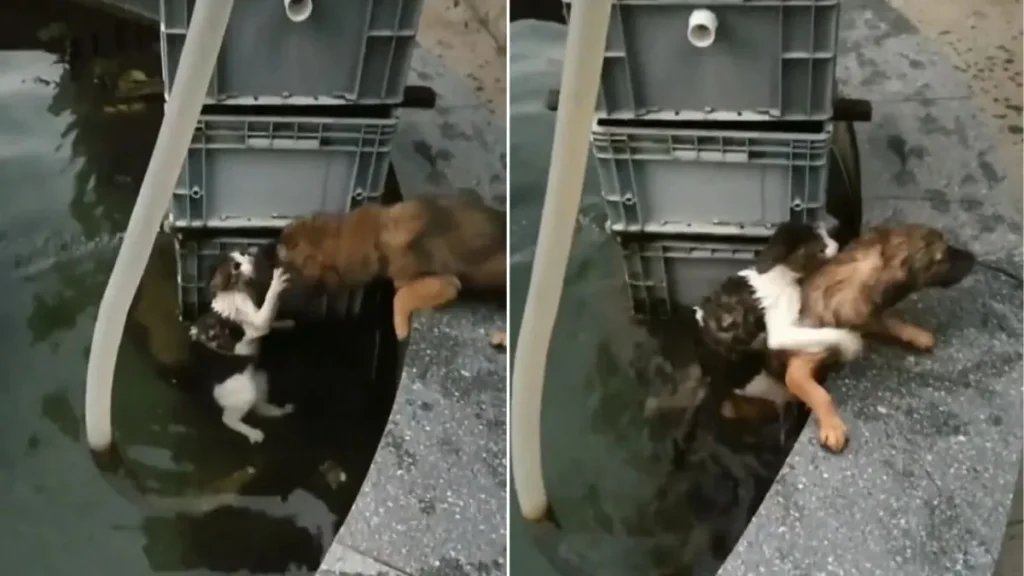Thank you for being a responsible pet owner and taking care of your furry friend. Have you ever wondered why your dog sleeps after a walk? In this article, we’ll explore seven possible causes and their solutions, along with other related concerns.
So, why do some dogs sleep after a walk?
A dog may sleep after a walk due to age, mental and physical tiredness, dehydration, genetic makeup, weather conditions, excessive exercise, and health issues. To prevent this behavior, it’s essential to keep your dog hydrated, walk at dawn or dusk, provide suitable exercise, meet with a vet, and choose paths with fewer distractions.
Since the causes of this behavior can be both unusual and common conditions, identifying the exact cause is crucial to finding the right solution. Therefore, we suggest that you stick with us until the end of the article to learn more about this behavior and how to prevent it.
By following the right approach and taking the necessary precautions, you can ensure that your furry friend has a happy and healthy life filled with plenty of walks and playtime. So, let’s dive into the world of dogs and their sleeping habits after walks!
Reasons why do some dogs sleep after walks?
There may be one or multiple reasons to fall asleep after a walk. Walk through all of the reasons and observe what your circumstance is.
Without further ado, let’s get started.
1. Age and health matters.
Adult dogs are more prone to problems such as muscle aches and arthritis. Therefore, even a 10-15 minutes walk can give them high pain, resulting in sleeping just after returning home.
A similar situation can be seen pertaining to younger puppies. Not necessarily to have arthritis or muscle pain, but they tend to have fragile, weak bones.
Even if there weren’t a bone fraction, a 20-30 minute walk would cause a puppy to fall asleep continuously for an hour or two.
Note that puppies don’t have strong and resilient bone structures. Wherefore, discussing with your vet is vital instead of deciding a walking time on your own. In fact, the same story is applicable even for old dog parents!
Moreover, the health status of the dog is another consideration. If your dog doesn’t usually sleep after exercising, perhaps it could be due to a health problem.
Here are common symptoms of illness in canines.
- Weakness.
- Sudden tiredness.
- Lethargy.
- Excessive urinating.
- Excessive thirst.
- Tend to hide in dark places.
- Trying to escape.
- Heavy drooling.
- Change in activity level.
Here is why some dogs sleep after a bath [5 reasons | written by Dr. Amanda]
2. The dog is mentally tired!
How do you feel just after a long zoom meeting or after working for a few hours in a row with the laptop? Definitely sleepy, right?
There is no much difference when we think about dogs.
When you provide a good walking session to your dog, it has to encounter loud noises, different smells, seeing miscellaneous things, including other dogs, people, small creatures, vehicles.
Consequently, the dog wants to get at least a little nap after a walking session, not because he is physically tired, but because he is mentally exhausted.
If this is the circumstance, there is nothing to worry about. Nonetheless, you can do certain things to minimize its mental tiredness, which we gonna discuss under solutions.
3. Physically tired.
I know this seems obvious. However, physical tiredness is the primary reason why does your dog used to sleep after walks.
Essentially, we provide walks and other exercises to our dogs for their both physical and mental well being and to keep them calm and quiet throughout the day,
Even though a high energetic dog requires high energetic activities in order to burn off their energy, dogs often have a moderate to a minimum amount of access energy tend to be satisfied with 20-30 minutes longs walks twice a day.
So, if your dog isn’t a high-energy dog like Weimaraner, Vizsla, German shepherd, Border collie, Husky, falling asleep after having a good walking session is a good indication that the dog has enjoyed the walk.
4. Dehydration.
If your dog doesn’t usually sleep after exercising, think about whether it receives enough water during the walking sessions, consequently making the dog dehydrated and exhausted.
Here are some common reasons for dehydration in a dog after exercise.
- Giving walks during the daytime.
- It’s hotter outside than you thought it could be.
- Due to an illness.
- Eating salty food.
- Heatstroke.
So, the dog might feel dizzy and thirsty after walking, resulting in a small nap. So, having adequate knowledge of how much water a dog should drink will make your life easier.
5. A genetic makeup.
There would be nothing wrong if someone said that most dogs are genetically predisposed to this behavior.
We all know that dogs are descended from wolves. Apart from trying to find a meal or occasional walks for long distances with the pack, they have no use in wandering around for miles.
However, they tend to roam freely in their territory with numerous restings while being sensitive to the scent of the breeze and the sound.
Therefore, when dogs have a long walk, they get tired and tend to sleep as a genetic predisposition.
Recommended reading: Why Do Dogs Flea Bite Each Other?
6. Weather matters!
Sometimes lethargy in a dog can be seen due to walking or exercising under unacceptable weather conditions. As I mentioned earlier, it’s hotter outside than you thought it could be, or it’s a sunny day.
Nonetheless, set aside evening or morning time to walk the dog and be mindful about whether conditions. Moreover, you gotta discuss with your vet regarding exercise requirements according to the season of the year.
Moreover, canines tend to sleep so much during cold days, especially in the winter season.
By the way, here is why do some dogs not sleep in their dog houses.
7. Unbearable exercise.
One of the most common reasons could be receiving unbearable exercises.
Usually, the exercise schedule needs to be changed when they transition to different ages, especially when puppies become adolescents and mature dogs turned into adult canines.
Moreover, it should also be changed when the dog experience different health conditions.
Therefore, have an afterthought about his exercise schedule if he suddenly starts to sleep after walks and make changes that need to be done to the schedule after chatting with your vet.
How long will a dog nap after a walk?
Most dogs would love to have a nap after a walk or playtime. Sleeping from 30 minutes to 2 hours is mostly natural and nothing to worry about.
However, this time can vary on the dog’s health status, breed, age, energy level, amount of exercise, last mealtime, mental and physical tiredness.
What to do if your dog sleep after walks?
As discussed earlier, some of the causes are very normal, and there is nothing to worry about.
Except for sleeping because of the cold environment and genetic makeup, every other reason leaves us something to think about. So, let’s observe what you can do about them.
1. Symptoms of fatigue.
First and foremost, educating yourself about the dog’s symptoms of fatigue is crucial. Because then you can consider returning home whenever he exhibits the signs of exhaustion even before completing the session.
Here are common symptoms of fatigue.
- Excessive drooling.
- Neglect commands.
- Excessive thirst.
- Yawning.
- Going zoomies.
- Aggressiveness.
- Tend to hide.
- Lose of appetite.
- Heavy panting.
2. Use a path of minimal distraction.
As I mentioned earlier, mental tiredness can be why some dogs sleep after having a walk. Therefore, choosing a minimum distraction path to walk your dog will help him minimize his mental tiredness after returning home.
Even though walking through people and hanging around with other animals and neighbors is vital for their socialization, avoiding noisy and crowded roads is something to think of.
If you have no choice, consider taking the dog walk at dawn or dusk due to minimum possible distractions. Don’t forget to wear reflection gear to be visible on the road.
3. Create an appropriate exercise schedule.
A dog may sleep after a walk because of unbearable exercise for the dog. Doing too much exercise regularly can make him exhausted, physically tired, and sleepy, with many other unexpected outcomes.
Even though your dog’s exercise schedule is appropriate for your dog, possible illnesses can make them impotent.
When preparing an exercise schedule for a dog, consider numerous things, including breed, age, health status, weather, season, and many more.
So, don’t hesitate to chat with your vet in order to come up with a better exercise schedule.
4. Carry a water bottle.
Since keeping the dog hydrated during the walking is much more important to prevent undesired circumstances like dehydration, consider carrying a water bottle along with a small and wide mouth cup.
That being said, don’t let the dog drink water when if he is heavy panting. Wait till he cools down.
5. Avoid extreme temperatures.
As I mentioned earlier, walking in the daytime on sunny days makes your dog sleep after walks due to unbearable mental and physical tiredness and fatigue.
So, limiting exercises to some extent during sweltering days, walking in the evening and early in the morning are acceptable.
6. Meet a vet.
A dog may sleep after walks entirely due to health issues like arthritis, bone fractures, and many other health concerns.
More importantly, you are the one who knows well about the dog. So, consider taking him to a vet as soon as possible whenever you figured out something abnormal.
Suggested Reading: Do Dogs Like To Sleep With Their Heads Elevated?
Things to be aware of.
Even now, you are aware of the reasons and the possible solutions, and there are certain things you have to be aware of as a responsible dog owner.
Symptoms: Always check for the signs of exhaustion or dehydration during the walks.
Don’t disturb: Since this sleep can be due to normal circumstances, don’t attempt to wake him up. However, if it sleeps more than two hours straight, there is something abnormal going on. So, consider waking him up.
Regular vet checkups: NEVER EVER forget regular vet checkups to stay awake about what’s going on with the dog.
Psychological issues: This also could indicate that the dog is prone to psychological issue(s), including anxiety, stress, boredom, separation anxiety, and fear of something.
Conclusion.
Most responsible dog parents are curious to know why do some dogs sleep after walks. We’ve discussed 7 different reasons and 6 possible solutions that you can think of through this complete article. Hope you found this helpful.
Cheers.



